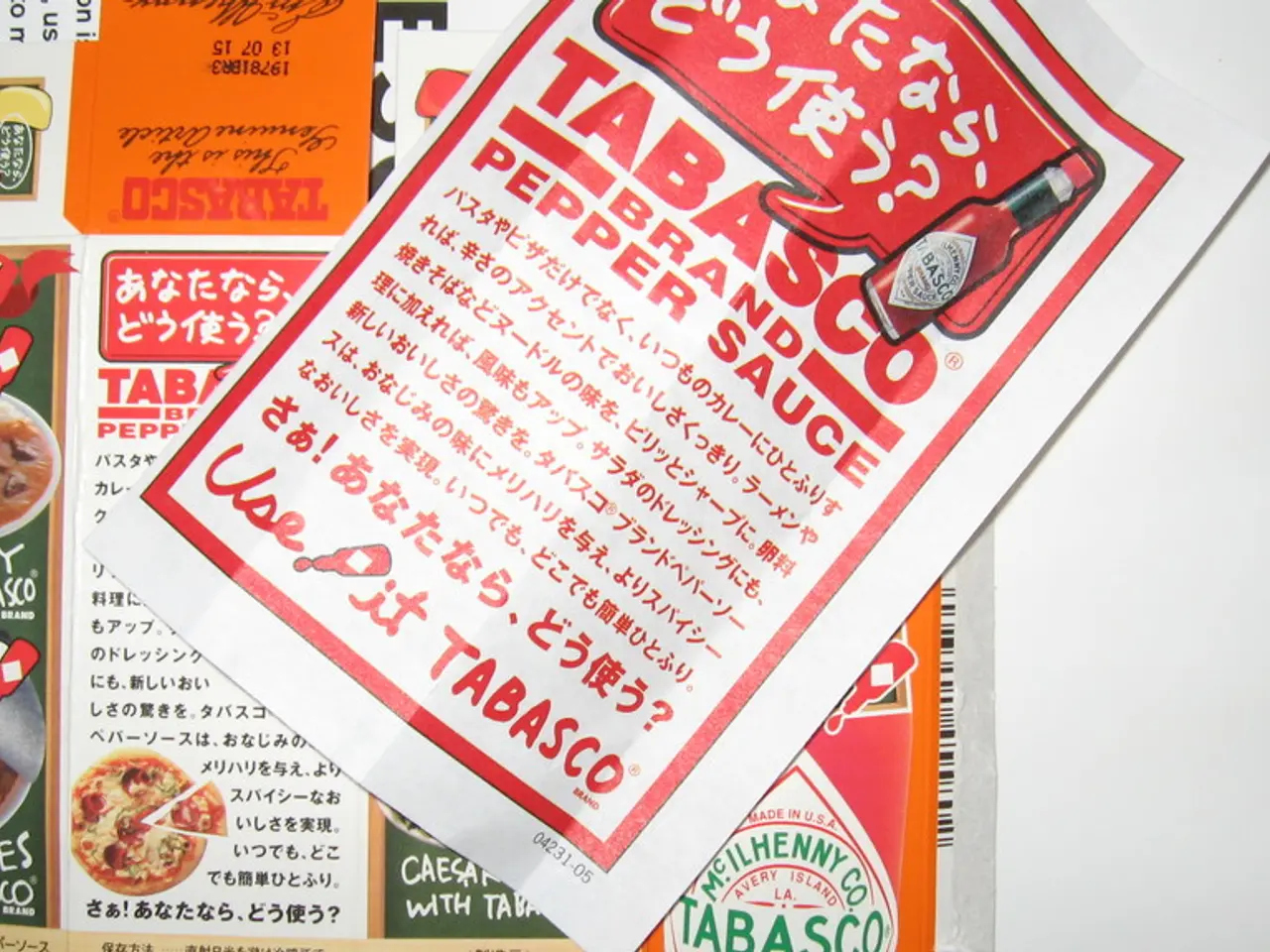Jamie Dimon Adjusts Viewpoint: Tariffs Pose Threat to Future Expansion amid International Turmoil
Jamie Dimon Sounds Alarm Over US Economy and Tariffs
In a surprising reversal, Jamie Dimon, CEO of JPMorgan Chase, has issued a stark warning about the potential negative effects of tariffs on the U.S. economy. This shift in stance from Dimon, a former supporter of President Trump's tariff policies, highlights growing concerns about the long-term impact of trade wars.
Known for his candid assessments, Dimon's comments at a recent financial conference paint a picture of a burgeoning economic crisis, particularly as the global economy faces challenges like slower growth, supply chain disruptions, and inflationary pressures.
For years, Dimon was a vocal advocate for trade protectionism, arguing that tariffs could strengthen national security and economic independence. However, his latest statement marks a distinct departure from his earlier support.
"Tariffs aren't just about trade deficits anymore," Dimon said, emphasizing that "the risks of tariffs are now far-reaching." While acknowledging the short-term strategic benefits, Dimon expressed concerns about the potential long-term damage caused by tariffs, such as market disruption, increased volatility, and dampened investment in key sectors like technology and manufacturing.
Furthermore, Dimon issued a direct warning about the impact on U.S. consumers. "The costs are trickling down," he added. "The price at the store, the price at the pump - all of these are affected by this ongoing trade war."
Beyond Trade Deficits: The Broader Economic Picture
Dimon's change of heart comes at a time when inflation remains a persistent issue and global trade tensions remain high. This shift aligns with growing concerns among economists and global leaders about the long-term impacts of trade wars.
In the past, Dimon had been a prominent voice within the business community, advocating for the Trump administration's trade policies. His backing of tariffs seemed to reflect a common sentiment among those concerned about China's growing influence on the global stage.
However, with global economic growth slowing and geopolitical uncertainties escalating, Dimon's pivot signalizes a more nuanced approach to trade protectionism. "I think we all have to step back and ask ourselves: What are we trying to achieve with these tariffs?" Dimon said. "The longer-term implications are more important than the short-term fixes."
A Tide Turning in Business Leadership
Dimon's comments echo sentiments shared by other influential business leaders, who have also begun to question the sustainability of tariff-heavy policies. Companies across sectors have expressed concern over higher input costs and supply chain disruptions, with many now calling for a reassessment of tariff strategies.
"Tariffs are no longer just a political issue," Dimon warned. "They're an economic issue. And businesses are going to need to adapt. But we also need to create the right conditions for growth, free trade, better access to markets, and a clear path forward for innovation."
As Dimon's stance evolves, it remains to be seen how other corporate leaders and policymakers will respond. Will other business leaders follow suit and reevaluate their support for tariffs?
Only time will tell, but one thing is certain: the impact of tariffs on the U.S. economy is no longer a matter of unanimous support among the business community.
Is a Recession on the Horizon?
Dimon's shift in rhetoric also coincides with ongoing uncertainty about the U.S. economic outlook. In April 2025, Dimon predicted that a recession was a "likely outcome" for the economy. However, following the Trump administration's decision to pare back some tariffs, JPMorgan economists revised their prediction to below 50%. Despite this, Dimon still does not rule out the possibility of a recession and emphasizes the importance of monitoring hard economic data, like job growth and inflation, for signs of deterioration.
Enrichment Data:Jamie Dimon, CEO of JPMorgan Chase, has expressed concerns about the impact of tariffs on the U.S. economy, particularly those imposed by President Donald Trump. As of June 2025, Dimon warned that the U.S. economic numbers could deteriorate soon due to ongoing trade uncertainties and tariffs, which have not yet fully affected key economic indicators like inflation and jobs reports. He has observed that his clients are holding off on investments due to these uncertainties. Dimon's stance on tariffs has been consistent in emphasizing the need for clarity and stability. He has suggested that backing off from some of the tariffs could be beneficial for negotiations and economic stability. While Dimon still does not rule out the possibility of a recession, he hopes for a "soft landing" and emphasizes the importance of watching hard economic data, such as job growth and inflation, for signs of deterioration. He anticipates that the full impact of tariffs might become more apparent in the coming months, such as July through October.
- Jamie Dimon, the CEO of JPMorgan Chase, warns that the risks of tariffs are now far-reaching, extending beyond just trade deficits.
- Concerns about the long-term impact of trade wars are increasing, as global trade tensions remain high and inflation remains a persistent issue.
- Dimon urges businesses to adapt to the current environment, emphasizing the need for growth, free trade, better access to markets, and a clear path forward for innovation.
- Dimon's stance aligns with growing concerns among economists and global leaders over the long-term impacts of trade wars on the global economy.
- Tariffs are no longer just a political issue, but have become an economic one, with companies across sectors expressing concern over higher input costs and supply chain disruptions.
- In response to these concerns, economists are now calling for a reassessment of tariff strategies to prevent market disruption, increased volatility, and dampened investment.
- Dimon's change of heart, coupled with ongoing uncertainty about the U.S. economic outlook, brings the question of a potential recession to the forefront, with signs of deterioration appearing in key economic indicators like job growth and inflation.



